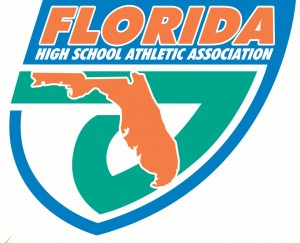Conducting interviews with prospective coaches
There is a coaching vacancy in your athletic department, and you have advertised the position and resumes have arrived. Now what?
 Certainly you need to conduct interviews but there are a whole host of considerations and decisions to be reached before you actually sit down with a selected candidate.
Certainly you need to conduct interviews but there are a whole host of considerations and decisions to be reached before you actually sit down with a selected candidate.
Questions are critical
Whether the athletic director alone is conducting the interview or if it is going to be a committee approach, you first want to decide upon the interview questions. It is best that you ask the same questions to all those being interviewed so that you have a solid basis for comparison.It is also helpful to create a grida simple instrument with the questions listed on the left column and the individual names printed across the top. By using this grid, you can quickly and easily rate each answer for every candidatea range from 1 to 5 with 5 being the highest works well.
When putting together questions for your interview, try constructing them so that they fit the specific needs of your setting. Most schools are unique and have their own set of philosophies, concerns, strengths and limitations. Your challenge is to find the best coach for your athletes, program and school. General questions that others use may not serve you and your situation well.
It takes care and time to construct good questions for your interview. You want to learn about the candidates philosophy, strengths and abilities without revealing the answer in a poorly constructed question. Very much like writing a report or narrative, revise and rewrite your questions until they are as close to perfect as possible.
For example, most administrators want coaches who promote good sportsmanship and serve as a positive role model for not only their student-athletes but also for parents and fans. If you ask a simple question such as, Do you think sportsmanship is important? you are certain to receive, Yes, as an answer. Even the most dense and unsophisticated individuals realize this is the expected answer.
To find out what the candidate really thinks and believes, you might try this one: Provide one or two examples of how you actually instilled sportsmanship within your student-athletes in your previous position. Or, provide a hypothetical situationperhaps based upon one that really occurred at your schooland ask the candidate how he or she might handle it. This answer is valuable because it provides insight into a real concern or problem.
Athletic directors must have a plan and ask pointed questions when interviewing potential coaches.
Committee vs. individual interview
When there is a full committee on hand to interview a coaching candidate, assign a question to each individual. If they want to follow up to probe an answer for a little more depth or clarity, it is important that this also is done for the other candidates. Each person interviewing needs to ask the same questions and provide the same opportunities for the candidates to fully express themselves. Therefore, you need to provide all of the parameters and offer hints to all of those serving on the committee.
 When conducting an interview alone as the athletic director, try not to write notes while the candidates answer each question. This is stressful for the candidate and naturally the interviewee already is nervous. As soon as the candidate is finished and has left your office, this is the time to jot down all the answers and observations that you have.
When conducting an interview alone as the athletic director, try not to write notes while the candidates answer each question. This is stressful for the candidate and naturally the interviewee already is nervous. As soon as the candidate is finished and has left your office, this is the time to jot down all the answers and observations that you have.
In a committee setting, it is possible to amend this general guideline a little. If you wish, discretely make a note or two when someone else is asking the question. Normally, the candidate is paying attention to and making eye contact with the person who posed the question and may not be aware that you made any notations.
No matter if it’s in a committee setting or an individual one, don’t schedule interviews so tightly that the next candidate is sitting in the waiting area as the previous one leaves. Even if your goal is to be efficient and to complete your interviews in a designated time slot, having them too close together is a little awkward and not in very good taste. If there is a separate exit and entrance to the conference or meeting room, you might be able to schedule less time between interviews.
Conversation starters
Beyond these basic considerations, the following are three specific questions to utilize with suggestions as to how to use them.
1. The opener. If you can, start with the basic opener, Take a few minutes and tell us something about yourself … your background. This question allows the candidate to relax a little, answer something that they should know well and get over the initial nervousness. But, this simple question provides you with so much more!
Often, the answers are very revealing. Candidates take this as an open invitation and tell you things that you might never think or dare to ask. More helpful information is gleaned from this beginning than you might imagine.
2. What is important? Be sure to ask each candidate why athletics are important or how do they fit into the total scheme of things in a high school. In this instance, you are hoping that the candidate does not fixate on winning games. Sure, coaches should prepare and try to win, but you want to determine if they understand the real value of education-based athleticsyoung adults learning skills, improving, being good sports and learning life-long lessons.
You might want to follow up with, What part does winning fit into an education-based athletic program and what are some other important outcomes? The person that does not stumble with this question might be a long-time keeper for your program.
3. Coaching philosophy. Ask the person about his or her coaching philosophy. You might want to limit it a little by asking what their offensive philosophy is and why this is their preferred one? Actually, it doesn’t matter what they claim is the best and the reasons why.
The important part is to determine how well they convince you that their chosen system is the best. Why? Because this is exactly what the candidate has to do with your student-athletes and if this person doesn’t clarify things for you, there isnt much hope for your athletic program.





